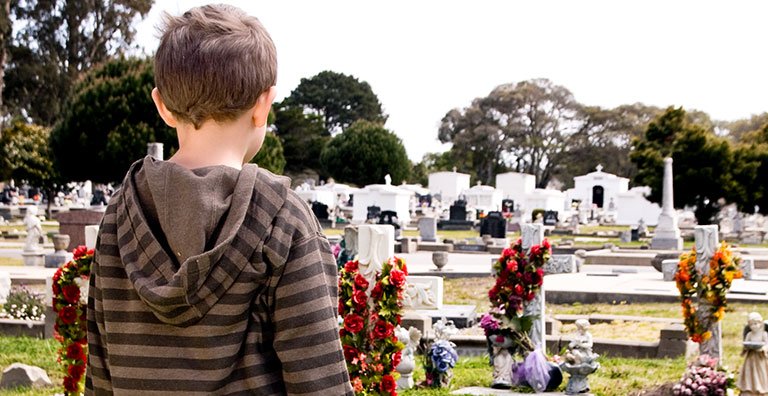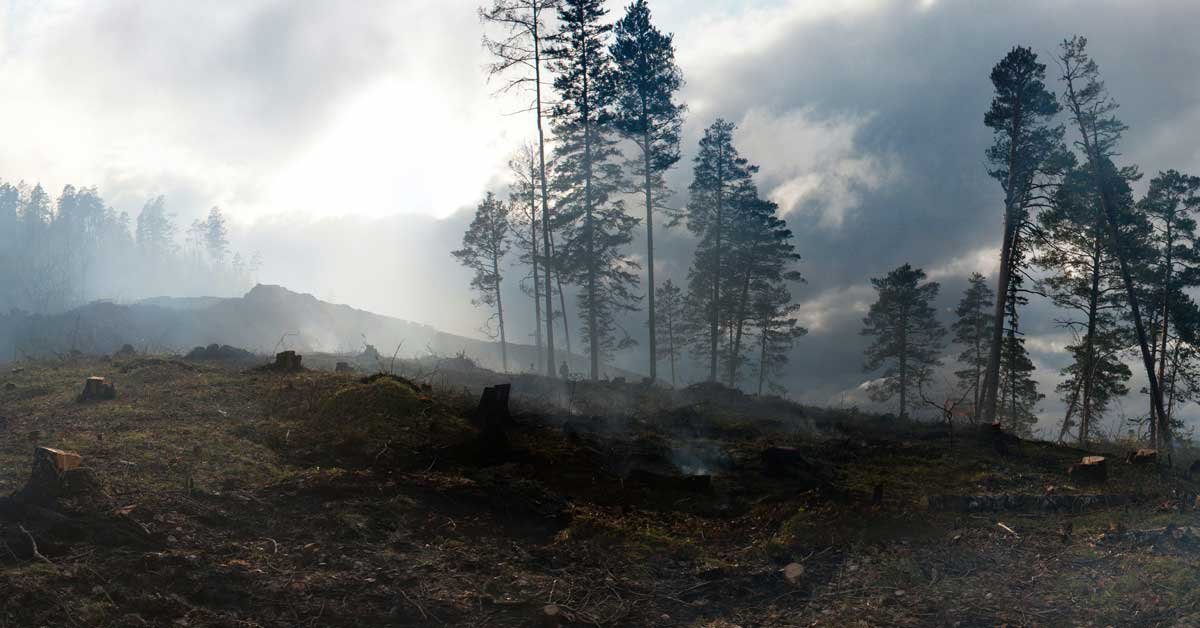
Illuminating the Role
of Death in Life
September 2023
The EBF Mortality Awareness Preparedness (MAP) project seeks to familiarize individuals and groups with the way death anxiety can operate in human lives. This work is predominantly informed by Terror Management Theory (TMT), the branch of social psychology that grew out of Becker’s writings.
With this guide we hope to help advocates for social change utilize a lens of death anxiety to better inform persuasive communication, especially on topics that inherently remind people of their mortality.
The Living Legacy
After 30 years of advancing the understanding of death anxiety and denial, the EBF closed its doors in 2023.
However, the the International Society for the Science of Existential Psychology (ISSEP.org) continues to honor the legacy of Ernest Becker and the EBF.
Since 2023, ISSEP maintains this website, publishes original Becker-related content, and offers the Ernest Becker Honors:
Dedication to a shared vision is exactly what The Church of Stop Shopping is about. For this December issue of the EBF newsletter, we wanted to focus on the connection between overconsumption and death-denial. To do so, we are featuring this special group from New York City.
Hello EBF friends and Becker fans. This year we celebrate a double anniversary: 50 years since Becker’s The Denial of Death, and 30 years of the Ernest Becker Foundation! This newsletter is dedicated to highlighting what has been accomplished in that time, and what’s in store for the future.
Over the past year we applied the lens of Becker’s work and insights to look at a variety of current events. Suffice it to say, 2022 was a year ripe for death anxiety. We witnessed the start of a war in Europe, major school shootings, the ongoing death rate from the COVID-19 pandemic, and the overturning of Roe v. Wade, to name just a few examples. Our webinar series mirrored these topics as we examined death anxiety’s role in these dynamics.
In response to gun violence, Americans differ drastically. Some are quick to blame guns, while others rush towards other explanations, fearing that the right to bear arms will one day be taken away entirely. Like most things in life, neither the issue nor its solution is simple or one-dimensional.
What does it mean to be “Death Positive”? This term may feel counterintuitive to many. Death Positivity is about accepting that we will die and making the most of our lives. As Western society has become more secular, many rituals surrounding death and dying have gone away, leading to a cultural “denial of death” as Becker discusses, or what others have called a death taboo.
Ernest Becker talked about religion being a type of “immortality project,” in the sense that life continues on after death. Some people interpret this as a criticism of religion, and while Becker was certainly critical of the abuse of religion, he was far from disparaging of religion itself.
Much of Ernest Becker’s synthesis has made its way to the scientific community, but his insights are equally important in the arts and humanities. Feeling that we can create something of value and meaning can help us accept our own mortality, and one of the ways we do that is through artistic expression.
We have dedicated this issue of the newsletter to conversation about climate. It’s a social issue to which many people have applied Becker’s synthesis. While many conversations about science do not elicit death anxiety, climate conversations have come to occupy a unique crossover between science, politics, and personal belief.
What does death anxiety have to do with discrimination? As it turns out, a lot. Becker said, “As we have learned, only scapegoats can relieve one of his own stark death fear: ‘I am threatened with death—let us kill plentifully’” (The Denial of Death).
Over 30 years of psychological research in the field of Terror Management Theory (TMT) have provided empirical evidence for the ways in which death anxiety influences our behavior, and how it can be used to manipulate us in political contexts.
In this feature, we interview three Native Americans who discuss the way death is viewed in their own culture, and how this relates to the way they approach their relationship to their own mortality.
What are the effects of constant conscious awareness of our mortality? In this issue we talk to researchers who study how mortality influences human behavior, to see what they had to say about the effects of heightened mortality awareness that we are experiencing thanks to COVID-19. We also examine examples from the news.
Film captures elements of the human experience with complexities ripe for Beckerian analysis. With gratitude to film buff and Terror Management Theory co-founder Jeff Greenberg (and his colleagues), this edition of our newsletter is dedicated to Beckerian film reviews.
As Becker noted, mental health is often not a question of delusions, but of too close a confrontation with the reality of existence. This is why Becker talks about mental health as a universal issue and intrinsic aspect of the human condition. Experts in the field of mental health discuss the challenge of confronting mortality head-on.
As Becker illustrated, death-denial often shapes our behavior in highly subtle and unconscious ways. Yet, when it comes to its most literal application—facing death in real time—we have ample evidence of the difficulties created by death denial. Nowhere is the manifestation of death denial more blatant than in the world of medical treatment.
In the following feature, you will read about some of Becker’s younger fans, from a teenager who faced her own mortality, to students who became passionate about Becker and Terror Management Theory. You will see the ways in which Becker’s ideas resonate for each individual help shape their understanding of the world.
As with most fears, “fear of the other” has fear of death at its base. Not only does the creation of stigmatized others create injustice and power imbalances, it is a way for humans to deny their own vulnerability. Experts discuss the relevance of fear of death and the process of othering in context of criminal justice.
Death anxiety and climate change sit uncomfortably side-by-side. We have marred the Earth, and as Becker cautioned, our fear of death has played a role in this. In this newsletter, the EBF will seek to address the relationship between climate change and death denial, and how this can inform our understanding of humanity’s contributions to environmental destruction.
Our fraught relationship with mortality can help us explain why we don’t like to talk about periods or see women breastfeed in public, why women internalize the male gaze, why society objectifies women, and more. Despite Becker’s problematic language, his extraordinary insight on human social behavior is a powerful tool we can use to inform modern liberation struggles.
During this 2016 campaign season, the Ernest Becker Foundation invites you to join us in examining the underlying messages in the images, words, and sounds of political advertising, specifically those messages that provoke our subconscious fear of death.
Experts within the Ernest Becker Foundation community who come from different religious perspectives have shared their thoughts with us on how Becker helps people understand their religion, and how their religion helps us understand Becker. Namely, how is their religion compatible with Becker’s synthesis and how does it provide its adherents “victorious, yet non-destructive” paths through life?
EBF Data Blitz - New Research in Terror Management Theory
April 7, 2023
Join us for an Ernest Becker Foundation "data-blitz": researchers will present short 5-minute presentations demonstrating the diversity and creativity of current research in Terror Management Theory (TMT), the field of research derived from Ernest Becker's work.
Ernest Becker, Otto Rank, and Psychotherapy
Feb 10, 2023
Join the Ernest Becker Foundation for a discussion with the Chicago Center for Psychoanalysis on the overlap of Ernest Becker, Otto Rank, and psychotherapy.
Ernest Becker and Education
November 16, 2022
Join us as we talk to three teachers who have used Becker's ideas in the classroom. They discuss how students react to the material, what impact it has had, and why they believe these ideas are important and helpful in a teaching context. Panel discussion followed by Q&A.
Follow the legacy of Ernest Becker and the Ernest Becker Foundation!
Subscribe to ISSEP for information about Ernest Becker Grants & Awards, Becker-related Features & Spotlights articles, and other relevant news in the science of existential psychology!
To think people can be risking their life for the sake of an idea, what does that take? What is the recipe, what kind of personalities allow people to be willing to die?
Shelley F. Diamond, Ph.D., has been a private practice full-time psychotherapist since 2006 up until the end of 2021, when she had to suddenly close her practice after a diagnosis with pancreatic cancer and a prognosis of less than 6 months to live.
Ashkan Honarvar’s artistic projects originate from a question: Why do we do the things we do?
Emily Courtney | August 4, 2023
On July 21st, 2023, the world witnessed Barbenheimer: an internet meme built on dualistic release of seemingly opposite films: Barbie and Oppenheimer.
Daniel Liechty | April 13, 2023
Schneider’s own take on human psychology is an emphasis on ‘awe’ as a fundamental pathway toward building a sound, sane mind and a strong sense of spiritual connection to that which transcends the individual.
Marcus Holmes | January 26, 2023
Even those who have abandoned religion still deny death—which is to say they deny the brutal conditions and pointlessness that all biology is heir to—by finding refuge in some other mode of denial, what Becker called a “hero project”.
Daniel Liechty | January 26, 2023
With this book Bassett has made a very valuable contribution to both media studies and to Becker/TMT literature. For any of us with Becker/TMT interests, this book is a ‘good read’ and one to keep handy on the shelf.
Michael Tymn | June 13, 2023
In his 1973 Pulitzer Prize-winning book, The Denial of Death, anthropologist Ernest Becker states that “religion solves the problem of death, which no living individuals can solve, no matter how they would support us….it gives hope…
Audrey Cardany | May 30, 2023
The human construction of culture is central to mitigating death anxiety by providing pathways to immortality and creating criteria for determining meaning in life as well as validating personal worth in society. The Arts are essential elements of culture…
Kevin Holbeche | April 27, 2023
English Prime. It conjugates the English language without the verb “to be” – for example, without the words “is”, “am”, “are”, “was”, and “were”. Some believe that these words possess certain dogmatic and infallible aspects, where only uncertainty and the unknowable should truly hold sway.
Geertje Else Wiersma and Rev. Charles C. Navle | January 13, 2023
Our minds, our dreaming nature, can put us anywhere, even journeys to the stars themselves and to times past and times to come. That we …
Phoebe Agnew-Bass | June 18, 2022
Terror management theory (TMT; Pyszczynski et al., 2015), inspired by the works of Ernest Becker, proposes that humans’ ever-present awareness that death is inevitable has …
Gabrielle Nieuwoudt | May 11, 2022
Terror Management Theory (TMT), inspired by the works of Ernest Becker, asserts that humans, unlike other animals, have the ability to recognize that one day …
Sara Savar | May 11, 2022
The basic incentive behind gambling is to win money (Binde, 2013). This appeal of monetary gain might lead to the development of a gambling addiction. …
Harshi Dhingra | November 19, 2021
Ernest Becker’s teachings have been adapted into a number of different courses. Becker spent a lot of his life trying to answer one very simple …
Jackson Foran | August 14, 2021
The notion of violent nihilism has become increasingly relevant in the past few decades due to the prevalence of seemingly senseless violence. For instance, many …
Michael Coffey | July 24, 2021
“Thanne longen folk to goon on pilgrimages” -Geoffrey Chaucer Pilgrimages attract people who have something to work out. The walk is a ritual that offers …
Janice Tufte | July 23, 2021
Practicing Islam and other religions today can prove to be challenging for a number of reasons. One is the growing number of divisive socio-political climates, …
Tau Nell | March 12, 2021
Terror Management Theory (TMT), inspired by the works of Ernest Becker, posits that human beings, due to their unique awareness of their own mortality, make …
Alanah Maskell | March 11, 2021
The death penalty is legal in thirty states in America and activists have long called for its abolishment. These people are given the worst punishment …
Nikita Rattu | March 11, 2021
Globally, there have been over 100 million reported cases and over 2 million deaths attributed to COVID-19,1 classifying the COVID-19 outbreak as a pandemic.2 One …
Kirill Khrestinin | March 11, 2021
Death is unavoidable. Sooner or later people we know will drop out of existence, finding their so often premature demise. Everything around you will be …
Amanda Ferrer Knight | January 22, 2021
What drives someone to kill, and specifically become a serial killer, has fascinated society. Serial killers are often presented in the media as “insane.” However, …
Peter A. Pompa | October 27, 2020
I’ve been applying the insights and ideas from Ernest Becker’s work since I first came across The Denial of Death sometime in my early 20s …
Bruce Sheiman | April 29, 2020
In this essay I want to make a broader case for Ernest Becker’s thinking than has hitherto been presented, going beyond the narrow focus on …
Sam Fairlamb | April 28, 2020
How should we treat the legacies of those who achieve greatness but then go on to commit acts such as murder, sexual assault, or other types of …
Gábor Vona | October 26, 2019
At 20, I began my political career and was positioned to the right of Viktor Orbán, then prime minister of my country, Hungary. By 40, …
Sean Hall | October 26, 2019
An aurous glimmer pulled a pilgrim west For to purloin a peck of buried Ra He’ll build a lucent palace for the blessed And be acquitted of the …
Dr. Brian Robinson | August 19, 2019
We’ve had a problem these last almost four years, politically, in Britain. For a multiplicity of reasons, a diverse group of people have united in …
Talibah Chiku | July 16, 2019
Many years have passed since I was exposed to and read Becker’s Denial of Death. Unfortunately in this now, I fail to recall those moments …
Kevin Quiles | July 16, 2019
Tell anyone that the average life expectancy in the US is around 29,200 days and you’ll get a reaction. The reason is simple: the number, …
Beth Schultz | April 18, 2019
“The real world is simply too terrible to admit. It tells man that he is a small trembling animal who will someday decay and die. …
Carolina James | February 11, 2019
This is the terror: to have emerged from nothing, to have a name, consciousness of self, deep inner feelings, an excruciating inner yearning for life …
Michael Mountain & Lori Marino | December 6, 2016
Mortality is connected to the natural, animal side of [human] existence; and so man reaches beyond and away from that side. So much so that he tries to deny it completely.
Tom Cathcart | October 29, 2016
Richard Beck is a professor of psychology at Abilene Christian University, a school affiliated with the Christian Churches.
Bo Bestvina | October 12, 2016
Terror Management Theory (TMT) states humans have an unconscious existential anxiety arising from awareness of morality. In an attempt to buffer ourselves from this anxiety …
Kirby Farrell | June 28, 2016
With time to spare before a flight out of Pisa, I recently looked in on the Piazza dei Miracoli, where the famous tower of Pisa …































































